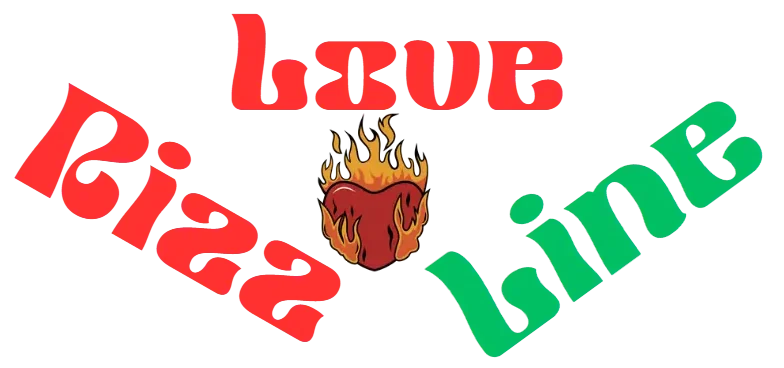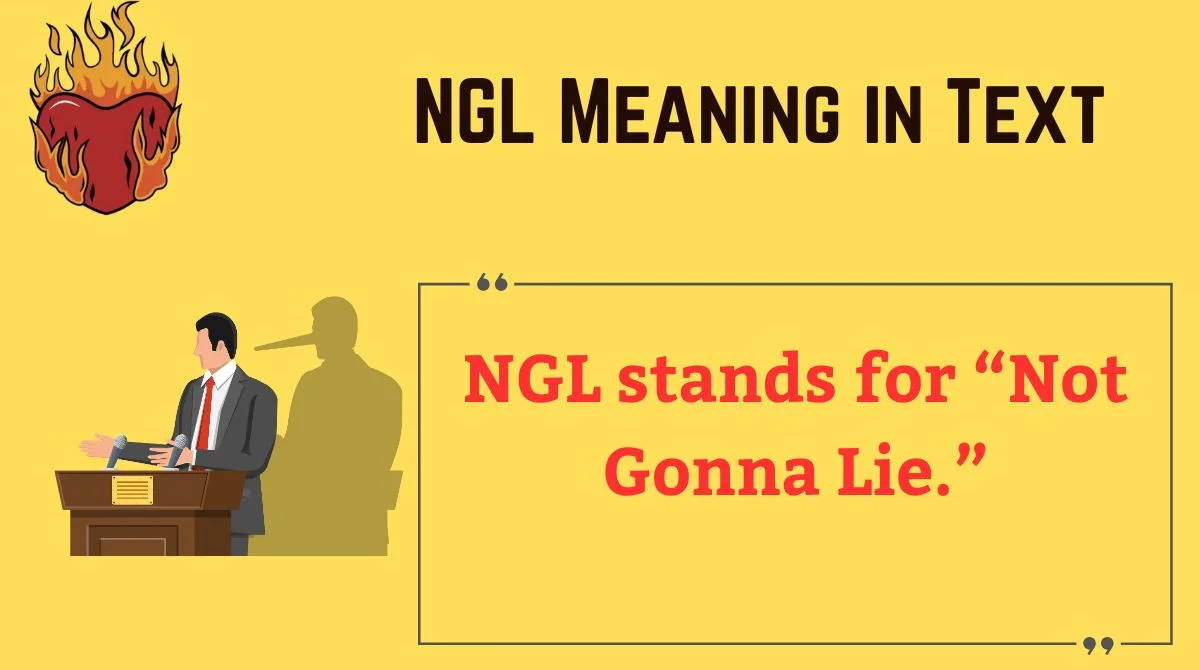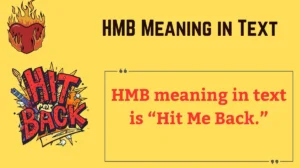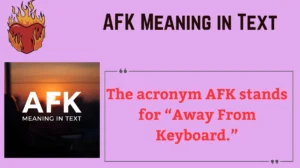Understanding the slang people use online can feel like decoding a secret language. One abbreviation you’ve probably seen everywhere is NGL.
It shows up in tweets, Instagram captions, Reddit posts, dating apps, and even casual workplace chats. But what does NGL actually mean in text? How should you use it, and when might it be inappropriate?
This guide breaks down the meaning of NGL in text, where it came from, how people use it today, and what you should keep in mind before dropping it into your own messages.
What Does NGL Mean?
NGL stands for “Not Gonna Lie.” It’s shorthand for telling someone you’re being honest, sometimes brutally so. Think of it as a preface to an honest thought or confession.
- Example: “NGL that movie was way better than I expected.”
- Example: “NGL I’m nervous about tomorrow’s interview.”
The abbreviation works because it signals candor. Readers immediately understand that what follows is likely to be real, unfiltered, or heartfelt.
Quick Tip: When you see “NGL” in a message, mentally replace it with “not gonna lie” and the sentence usually makes sense.
Origins and Evolution of NGL
Like most internet slang, NGL started informally before spreading across platforms. It appears to have gained traction in the late 2000s on forums and early social media networks such as MySpace and Tumblr. Twitter and Reddit amplified it in the early 2010s.
Why it spread:
- Short, easy-to-type acronym.
- Fits the culture of quick, punchy online posts.
- Works well with memes and reaction images.
Originally, “not gonna lie” signaled vulnerability. Over time, it also took on sarcastic and humorous uses, like prefacing a joke or a snarky comment. This evolution mirrors other acronyms (like “TBH” for “to be honest”) that started sincere but later became playful.
How NGL is Used in Texting and Social Media
People use NGL in several ways. Understanding the tone behind it is key.
Honest Statements
This is the classic use—introducing a genuine opinion or confession.
Example: “NGL I miss the old design of this app.”
Emphasis or Surprise
Sometimes it intensifies a reaction.
Example: “NGL that dessert was the best part of the meal.”
Humor or Irony
It can also be tongue-in-cheek.
Example: “NGL my cat types better emails than I do.”
Here’s a quick table showing the main tones:
| Tone | Example | Purpose |
|---|---|---|
| Honest opinion | “NGL I’m tired of this trend.” | Signals sincerity. |
| Emphasis | “NGL that was epic!” | Adds excitement or weight. |
| Humor/Irony | “NGL I only joined for the memes.” | Sets up a playful punchline. |
Common Misconceptions and Clarifications
Because NGL has several tones, people often misunderstand it.
- It doesn’t always mean total honesty. Sometimes it’s sarcastic or exaggerated.
- It’s not automatically rude. If the following statement is polite, NGL isn’t offensive.
- It’s not a “Gen Z only” term. Millennials and older users also use it.
Case Study: A workplace Slack message said “NGL this project is dragging.” The sender meant it jokingly, but a manager read it as criticism. Tone matters—especially at work.
Similar Acronyms and Alternatives
NGL isn’t the only honesty-related acronym. Here are some others you’ll see:
| Acronym | Meaning | Tone/Use |
|---|---|---|
| TBH | To Be Honest | Straightforward, often sincere. |
| FR | For Real | Agreement or emphasis. |
| IMO | In My Opinion | Softens a statement. |
| IDC | I Don’t Care | Blunt, dismissive. |
When to choose each:
- Use TBH if you’re emphasizing honesty without sarcasm.
- Use FR when you’re agreeing strongly.
- Use IMO for polite disagreements.
NGL tends to feel more casual and conversational than TBH.
Responding to NGL in Conversation
When someone uses NGL, your reply depends on their tone.
If It’s Serious
Acknowledge the honesty.
- “Thanks for being real about it.”
- “I appreciate your honesty.”
If It’s Playful
Mirror the tone.
- “Haha NGL that’s funny.”
- “Same here!”
If You’re Unsure
Ask for clarification.
- “Just to be clear, are you joking?”
Regional or Cultural Variations
Because NGL is an English-language acronym, it’s most common in English-speaking countries like the US, UK, Canada, and Australia. However, its meaning is widely recognized internationally thanks to social media.
Some regions have their own equivalents:
- In Spanish chats, people might simply type “no voy a mentir” (not gonna lie spelled out).
- In French groups, someone could say “je vais pas mentir” (I’m not going to lie).
Although there’s no direct acronym in other languages, younger bilingual users often adopt NGL as-is.
Usage in Specific Communities
Dating Apps
Users sometimes preface confessions with NGL to seem genuine:
- “NGL I’m mostly here for friendship.”
- “NGL I’m terrible at small talk.”
It can build trust but can also overshare.
Gaming and Forums
In gaming communities, NGL often signals blunt feedback or praise:
- “NGL your strategy saved the match.”
- “NGL that boss fight was trash.”
Workplace Chats
It’s creeping into Slack and Teams channels, especially among younger staff. Use sparingly—tone can be misread.
Potential Hidden or Offensive Connotations
While NGL itself isn’t offensive, the statement following it can be. People may use NGL as a shield for rudeness:
- “NGL you’re bad at this.”
This phrasing doesn’t magically make an insult okay. If you’re on the receiving end, consider the tone and your relationship with the sender before reacting.
Professional and Formal Settings
Should you use NGL at work or in formal writing? Generally, no. Acronyms like NGL belong to casual conversation. In professional settings, write out the full phrase (“I’m not going to lie”) or choose a more diplomatic expression (“To be frank,” “Honestly,” “Candidly speaking”).
This keeps your tone clear and avoids misunderstandings.
Quote: “Slang can connect you to your peers, but in formal contexts clarity beats trendiness.” — Business Writing Coach
FAQs About NGL
What does NGL mean in text?
It means “Not Gonna Lie,” used to preface an honest statement, confession, or emphasis.
Is NGL the same as TBH?
Not exactly. TBH (“To Be Honest”) is usually more straightforward. NGL often feels casual, playful, or sarcastic.
Can I use NGL in a professional email?
It’s not recommended. Use full words or formal phrases instead.
How do you pronounce NGL?
Most people read it letter by letter (“en-gee-ell”). Some say the full phrase “not gonna lie” in their head.
Does NGL have any hidden meanings?
No official hidden meaning, but tone can make it seem rude if the following statement is negative.
Conclusion
NGL has evolved into one of the most versatile acronyms in digital conversation. It started as a simple honesty marker but now functions as emphasis, humor, or sarcasm depending on context.
Use it when you want to sound casual and authentic—but think twice before using it in professional or sensitive settings.
Knowing the meaning of NGL in text helps you navigate social media, dating apps, and chats without confusion. Whether you’re decoding a friend’s message or adding some flair to your own, understanding this acronym keeps your communication smooth and up to date.

Mark Peter is the creative mind behind RizzleLineLove.com, your go-to hub for witty, flirty, and downright hilarious pick-up lines. With a passion for blending humor and charm, Mark crafts content that sparks conversations, breaks the ice, and adds a playful twist to everyday moments.
Whether you’re looking to impress your crush, make your friends laugh, or spice up your social media captions, his work is all about helping you connect — one clever line at a time.



